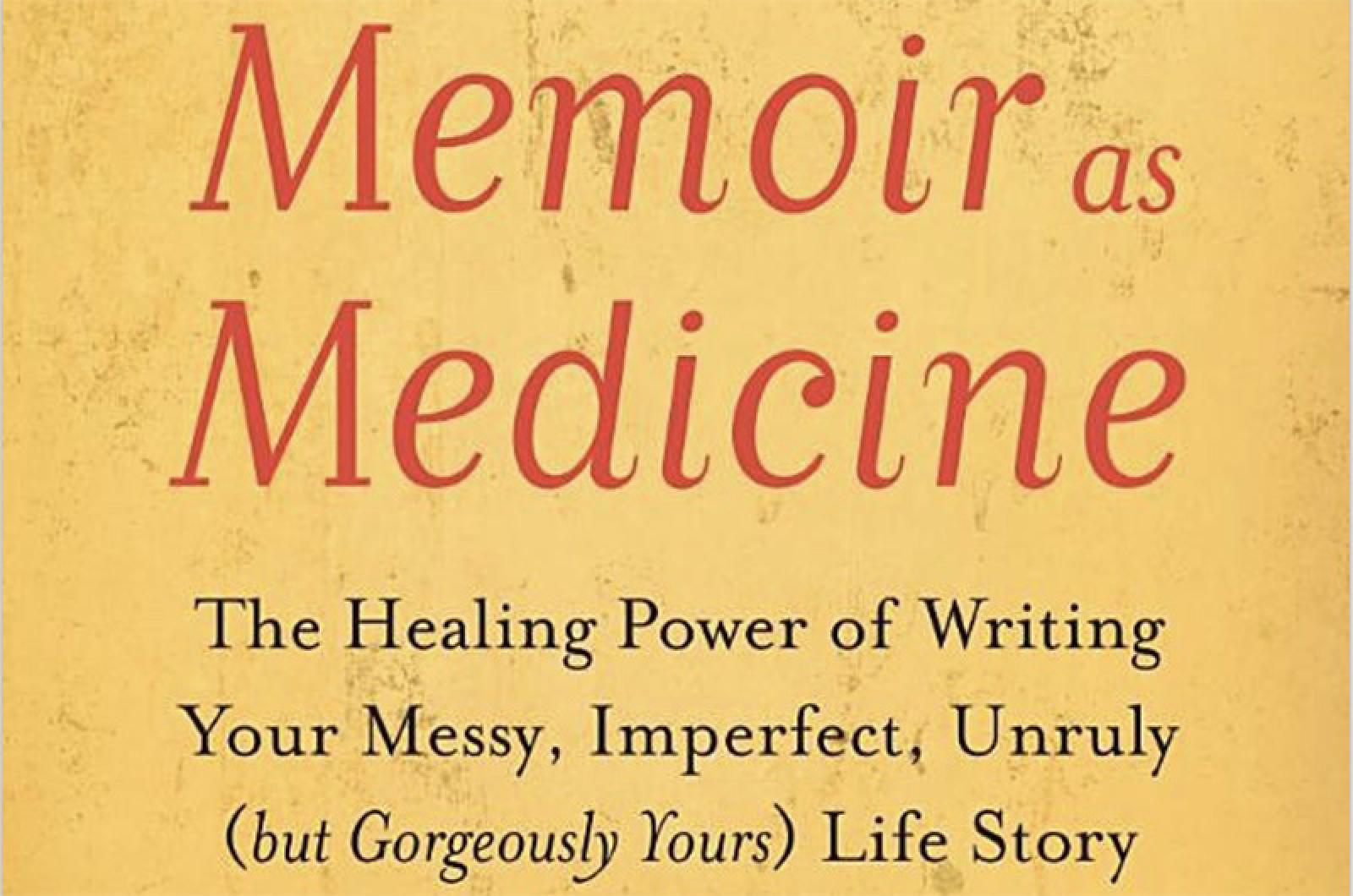Memoir as Medicine: The Healing Power of Writing Your Messy, Imperfect, Unruly (but Gorgeously Yours) Life Story by Nancy Slonim Aronie, New World Library, 2022, 201 pgs., $17.95
As Nancy Slonim Aronie, founder of the Chilmark Writing Workshop (and author of Writing from the Heart), writes in her new book Memoir as Medicine, everyone has stories inside them, and those stories are universally important, especially to their own tellers. Those stories can illuminate a life; indeed, they can save a life.
Ms. Aronie knows what she’s talking about and learned it in the hardest way imaginable. Her son was diagnosed with diabetes at only nine months old, got a multiple sclerosis diagnosis at age twenty-two, and died at age thirty-eight, ending a lifetime of caretaking by his parents and leaving a gaping grief that Ms. Aronie addressed through the craft of writing.
“I had wanted to know that suffering doesn’t kill you,” she writes in Memoir as Medicine. “I had wanted to know that there would be moments of such profound beauty I almost wouldn’t have traded them for ease. I had wanted to know that this was bigger than mother and son and sickness …”
In these pages, she transforms the lessons of that pain into tough, empathetic, pointed guidance to help her readers find their own stories. Memoir as Medicine is full of writing scenarios, writing tips, and writing strictures that are refreshingly direct and no-nonsense. She covers virtually every aspect of the writing life, from beginnings and setup (“You don’t need a studio to write,” she mentions at one such point. “If you think that, now that’s just your lame excuse for not doing what you keep saying you want to do”) to the tactics of trying to get your work published (“Submit something today to the top editor of a magazine or blog or any platform you admire and read regularly,” she advises. “Once you have secured an editor, you are allowed to fight for what you want”).
All the standard writing chestnuts, things like “Read your writing out loud” or “Show don’t tell,” are given a brisk examination, and readers are prompted throughout the book with exercises like the ones Ms. Aronie might assign in her writing workshops.
“Write a short piece on what you feel about solitude,” goes one such prompt. “And about how it felt or might feel to return to the social world.”
Interspersed throughout the book are stories drawn from her own life story, as befits a book about the power of memoir-writing. Reflecting on starting to write for Lear’s magazine, for example, includes a familiar reaction to the sprawl of Manhattan. “New York is a harsh mirror,” she recalls. “As soon as I get off the train, my hair frizzes, my thighs dimple, my skin pimples, and my skirt grows six inches longer. I am always a fashion decade behind in New York city. In the Big Apple, I am an overripe Seckel pear.”
In all cases throughout the book, the energy is unbeatable. Between suggesting exercises and dispensing advice on page after page, Ms. Aronie creates an incredibly effective inducement to stop procrastinating and actually start writing. Her enthusiasm is infectious, and her advice is a confident mixture of pedagogy and practical considerations.
“Make sure you have some solitude,” she writes at one point. “You may have to set up a little space in the back of your closet or your cubicle at work or your local library. But if you don’t get a dose of quiet, you won’t get past a certain level of knowing, knowing what you don’t know and knowing what your book is about.”
Note the key mention there: your book. At all turns in Writing as Memoir there sounds that ultimate encouragement, the reference to your book as a thing that already exists, something tangible that can draw you forward with encouragement and certainty. Trust your own insights, she instructs her readers; learn to love the process; embrace the ultimately cleansing effects of doing the work. And most of all, do the work.
The knowing compassion of urging readers to heal themselves by telling their own stories will be exactly what many of her readers need to feel, something to counteract the stalling and procrastination that have likely stalled their projects. Writing as Memoir will sweep away those obstacles, if readers let it.







Comments (2)
Comments
Comment policy »